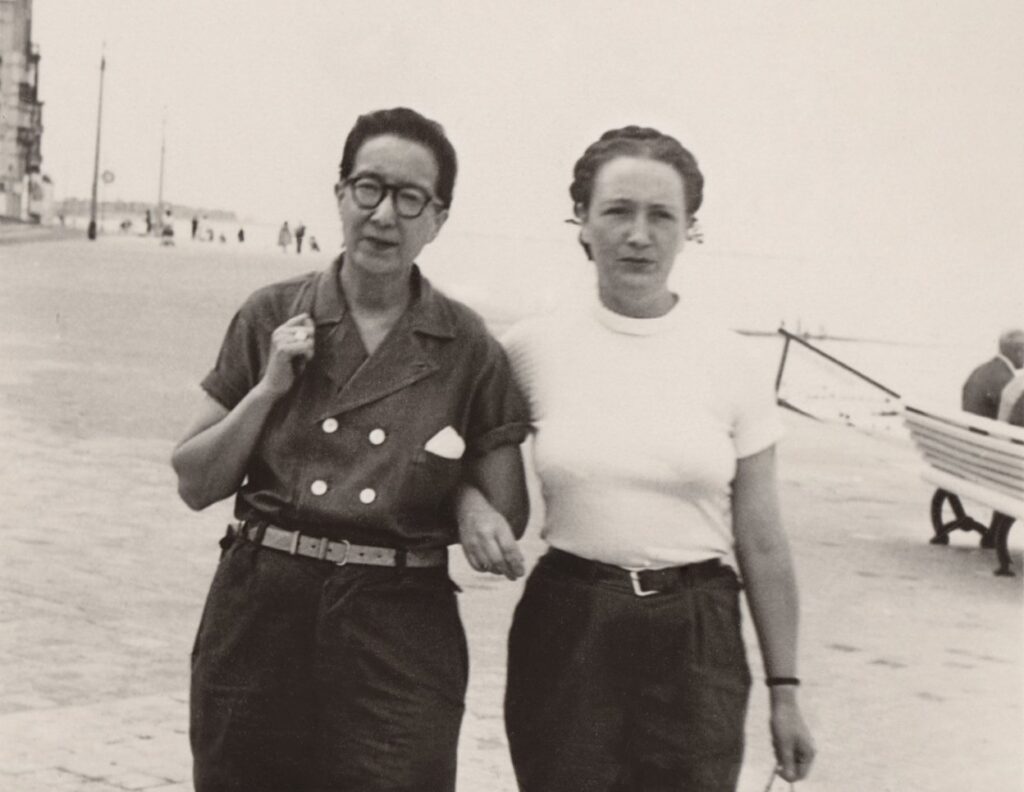Documentary Nelly & Nadine to open in New York
Nelly & Nadine, the hit documentary film about two women who fell in love in a concentration camp is set to open theatrically in New York on December 16.
The film, directed by Magnus Gertten, tells the love story of Nelly Mousset-Vos and Nadine Hwang who met at the Ravensbruck concentration camp during World War II. Through the utilization of old diary entries, letters, and photographs inherited by Nelly’s granddaughter Sylvie Bianchi, the movie chronicles a secret love affair that would span nearly thirty years and go across two continents and four countries until Nadine’s death in 1972.
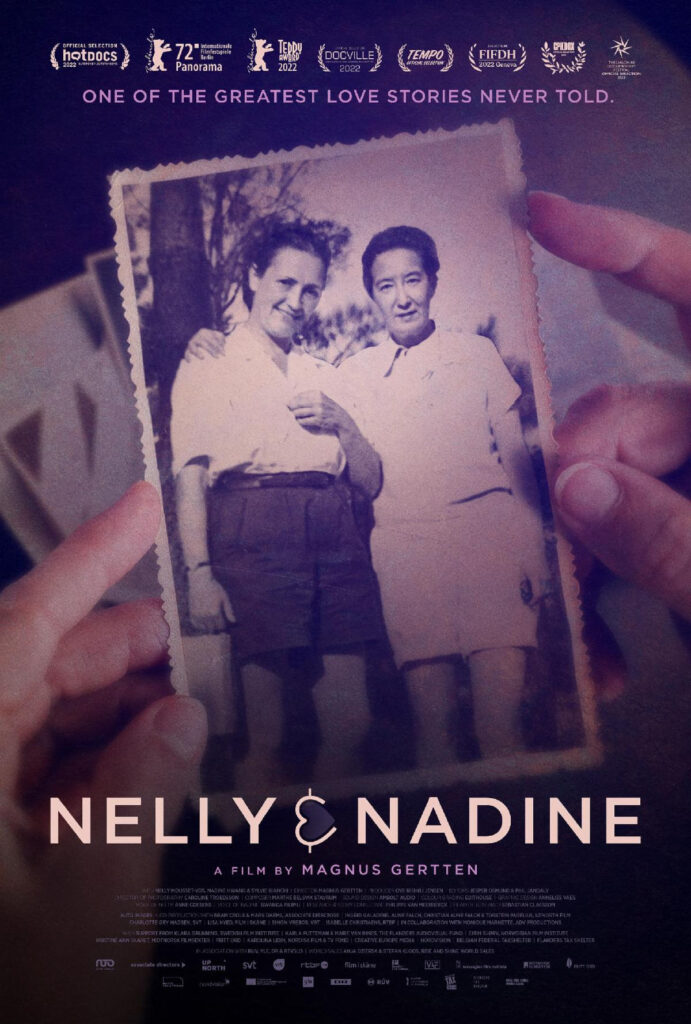
The film, which won the 2022 Teddy Jury Award at the Berlin International Film Festival where it made its world premiere, continues to touch audiences worldwide, most recently at Outfest LA this summer. In advance of its NewFest premiere we sat down with Magnus Gertten to discuss this beautiful and important film.
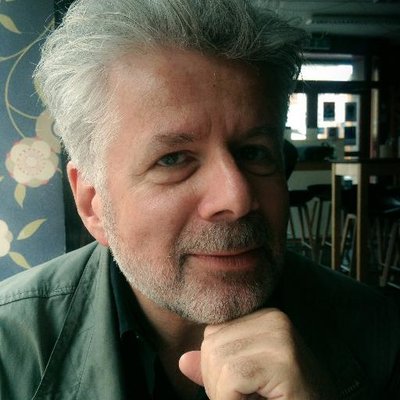
Queer Forty: Nelly & Nadine is the third documentary you made based off a newsreel depicting women and children arriving at the harbour of Malmö in Sweden after being released from the concentration camps in 1945. Please tell us where you discovered the newsreel and what was it about that footage that inspired you to make your trio of documentaries?
Magnus Gertten: That newsreel is really quite famous in Sweden, it’s also famous internationally because it’s quite rare to see footage that is shot immediately after people were being liberated from the concentration camps. I was really just curious to study it, since Malmö is my hometown.
I started to watch it and I realized how amazingly well shot it was. I also saw all these women, and they were looking into the camera like they were trying to connect to you. I became so interested and thought “Is it possible to find out who they are? Is it possible to find out 75 years later who the people in this film reel are?” I became a little bit obsessed by that. And as a documentary filmmaker, you need to be a little bit obsessed. That’s how it started.
I dove into the material together with my team and we ended up with first film Harbour of Hope (2011) which focuses on the historical context of the situation. I think the message of that film is the importance of the helping hand, that someone is there taking care of you. When I was out screening that film internationally, a woman in Jerusalem came up to me and said she recognized herself in the footage at Malmö, which made us think maybe we should work on this some more.
From that we ended up with Every Face Has A Name (2015). In it we were essentially “walking” around the harbour and giving back the names to these people. I met some of them as well because at that point, they were still alive. When I was screening this film in Paris, I was contacted by Sylvie and her husband, and that’s how Nelly & Nadine got started.
Initially Sylvie was not really interested in being a part of a film, so I went down to her farm, and it was only then that she told me that she had not read Nelly’s diary, and how it was a big secret in her family. That was the perfect start to the film. It starts with an enigma, a woman who is confronting family secrets.
Queer Forty: What was it in particular about Nelly and Nadine’s story that made you want to make the film?
Magnus Gertten: What fascinated me was the love story. I did not necessarily want to make another film about survivors from the Holocaust, despite its obvious importance. But when I found out that that that there was this big love story, a love story that has been in the shadows; I realized that these kinds of stories have been neglected for too long and I wanted to bring it to light.
Queer Forty: How did you piece together this story? Did you review all the archives yourself and make a narrative out of the journals and photographs? How did that work exactly?
Magnus Gertten: It’s a good question and the answer is that it’s a long painful process. This film is built out of fragments from two women’s lives. We have the diary, which obviously was so important because there you have the love story, it’s hidden there in a big diary. And then we had this family treasure of archives that Sylvie had at the farm which was unopened. She had not looked into it when I met her, and in there were 8-millimeter film reels, family films, letters, and photos.
Building a narrative for a film is something that that takes us years to do. And as I mentioned earlier, I think that the starting point of the film is an enigma. It draws the viewer into the film. You want to know everything about it. What was it with these two women? What happened to them? And so that’s what we were aiming for and trying to build upon.
Queer Forty: Indeed. We also loved inclusion of the story of Natalie Clifford Barney. You spent a good amount of time on her, which was wonderful. What was it about her story that made you want to include her in the film?
Magnus Gertten: It’s an amazing story. This is a lesbian pioneer who had this literature salon in Paris for many years, where many famous artists and writers came and performed.
It’s so strange. I was walking along in Paris a year ago where she had this literary salon, and there is no plaque. This was the site of amazing cultural events for so many years and there is nothing to commemorate it. I hope my film can make a contribution towards that and I hope someone picks up on it and makes their own film on Natalie Barney.
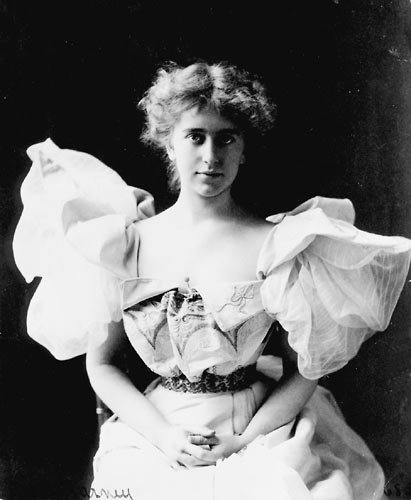
Queer Forty: We’d love to see that. As you were saying, it was a multiyear process to put together the narrative so, was there material that you wanted to include in the film that didn’t make it because it didn’t necessarily fit the narrative?
Magnus Gertten: Always. It’s always like that and you have to cut sometimes even your favorite scenes in the film because it’s a competition.
We would probably have loved to talk more about Nadine in the film. There’s definitely a possibility for someone else to do a bigger film about Nadine, but we didn’t have her words or the right footage, so our film is told from Nelly and her family’s perspective.
One of the cool things I’ve seen since the premiere at the Berlin Film Festival is that people are picking up on the story in China. So now people are doing documentaries about Nadine out there. She was the daughter of the Chinese ambassador in Madrid, and she went back to China in 1913, I think, and she spent the 1920s there. She learned 5 languages and was educated as a lawyer. She worked as a secretary for one of the prime ministers. She was a female pioneer in the sense that she was one of the women that could drive cars and do sports, etc. because she was part of the upper class. She decided, of course, that she couldn’t live the life she really wanted to live in China and that’s why she went to Paris in the early 1930’s and connected to who she felt she really was. It was there she connected with the Natalie Barney community.
Someone sent me 25 minutes of a documentary about Nadine in China. Luckily it was subtitled, so I could understand it. There’s a lot of new images from China that tell a lot about what she was doing, but there’s one thing they don’t tell in those documentaries.
Queer Forty: Her sexuality?
Magnus Gertten: Exactly.
Queer Forty: That’s a shame. It’s mentioned in the film that Nellie and Nadine were planning to tell their own story in a book. Perhaps their manuscripts can finally be released and that can be another way people can get to know Nadine better? Do you have any information about that?
Magnus Gertten: That’s a question that people ask very often, and I think it’s good that people are asking it because they feel this is a story we need to publish. When we had the premiere in Berlin, Sylvie was there as well, and she said that she is going to write the book. She’s going through so many things, there are hundreds of letters, not just between Nelly and Nadine but between Nelly and her friends. I think that you can find a lot of material to support this story in that way and there is more research to do as well. So, I’m looking forward to the book too, and you can think of this film as a teaser, in a way.
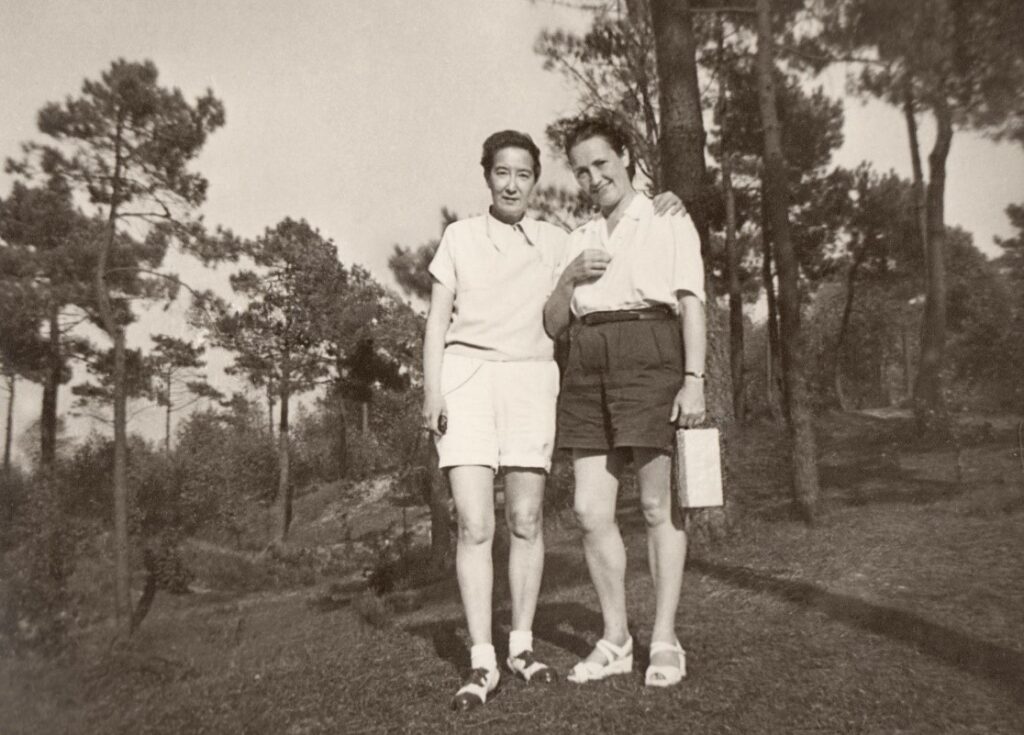
Queer Forty: We look forward to seeing it! What about you Magnus? Will you be taking a break, or do you have another project in the works?
Magnus Gertten: No, as a documentary film maker you work all the time. As a human being, you’re interested in so many things. I love stories, I love the arts. I love music. I’m a deep soul. I’m into politics, but I’m also into the lighter things. I need music. Music is a religious, spiritual experience for me, so I’m going to do a music documentary. That’s my next project. I’m not able to go much deeper into that at this time.
Queer Forty: We will definitely be keeping an eye out for it! Thank you so much Magnus for your time and this amazing film.

